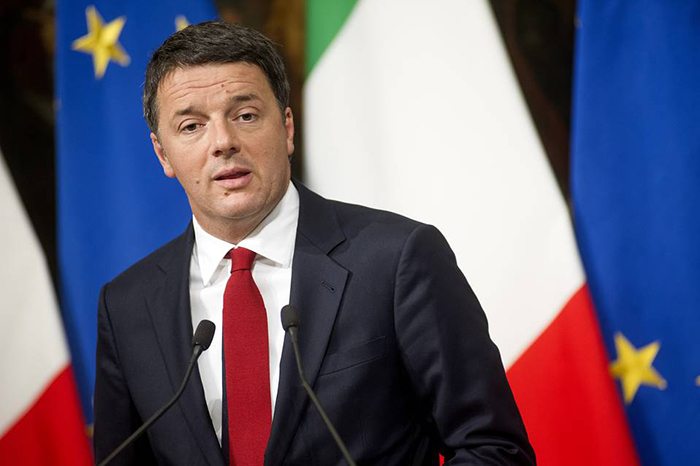Citizens of two European nations voted today in ballots that, on the surface, were purely local. But in today’s charged world of national and global politics, the world is reading the tea leaves – or in these cases, the coffee grounds – for much wider meanings.
In Italy, prime minister Matteo Renzi gambled, lost and resigned after suffering a heavy defeat in a referendum over his plan to reform the constitution. Technically a vote on whether to give more power to the lower house of parliament and less to the senate, it gave Italian voters the chance to have their say on Renzi’s wider performance and particularly his pro-EU policies.
Austria carried out a re-run of its May presidential election, ordered by the high court because it wasn’t convinced the first vote had been counted correctly.
Italy’s state broadcaster, RAI, published an exit poll suggesting 42-46% voted to back Renzi’s reform proposals, compared with 54-58% voting No. But the first projections based on the official count point to a wider defeat.
Opposition leader Matteo Salvini, of the anti-immigrant Northern League, said that if the exit polls were confirmed, the referendum will be a “victory of the people against the strong powers of three-quarters of the world”.
The euro fell against the dollar immediately after the exit polls came out.
The turnout was very high by Italian standards – about 60% of the electorate cast their vote.
The No campaign in Italy has been spearheaded by the anti-establishment Five Star Movement, led by Beppe Grillo. It wants a referendum on whether Italy should keep the euro.
The referendum comes in the wake of the Brexit vote in the UK in June, and coincides with the rise of the anti-immigrant Front National in France and populist parties elsewhere. It also comes less than a month after the election of Donald Trump in the United States.
The Austrian election is usually a purely internal affair because – unlike, say, the US – the president is a ceremonial role, rather like the Governor-General in New Zealand or Australia.
It was a showdown between a far right nationalist, Norbert Hofer, and a moderate, Alexander Van der Bellen, former head of the Greens.
Polls had indicated a tight race but within minutes of the polls closing, Hofer used his Facebook page to concede.
Van der Bellen called the result a vote for a pro-European Austria based on freedom, equality and solidarity.
France, the Netherlands and Germany all face elections next year in which anti-mainstream and anti-immigration parties are gaining ground.







